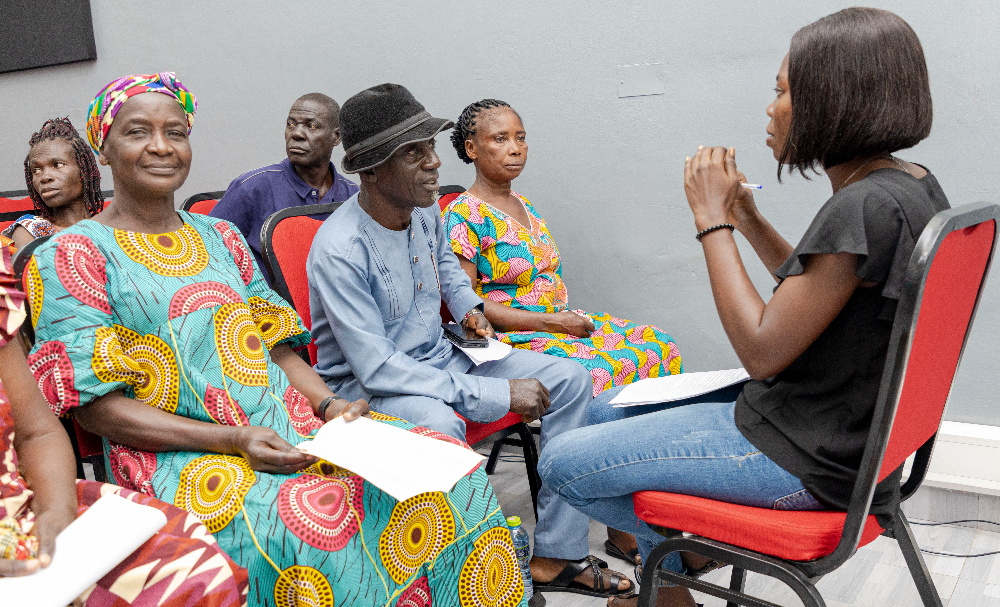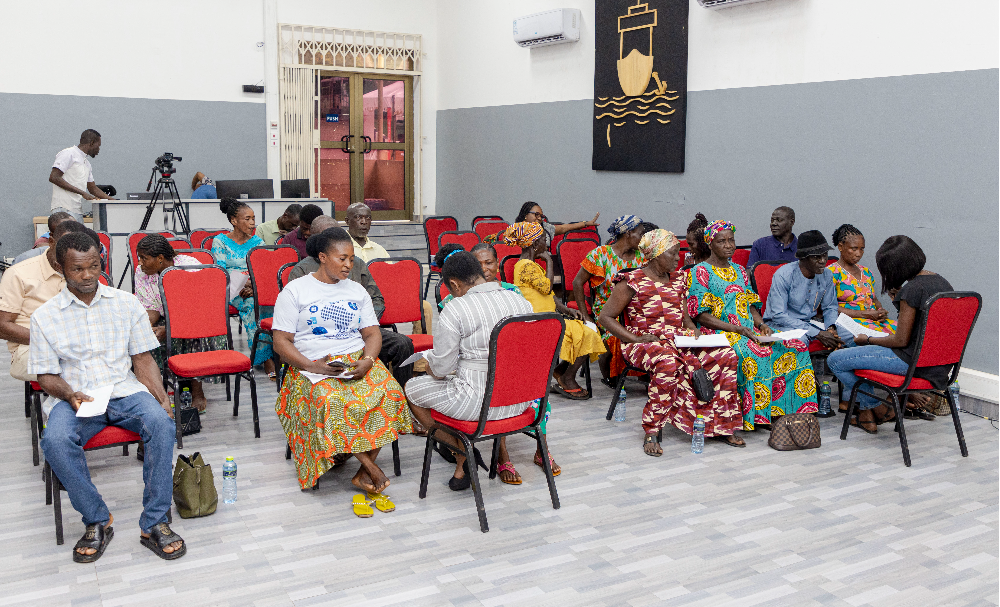The Principal Investigator for the Royal Society’s Climate and Biodiversity Project and Provost of the College of Science at Kwame Nkrumah University of Science and Technology (KNUST), Professor Leonard Amekudzi, has called for stronger collaboration among farmers, researchers, policymakers, and community members to protect Ghana’s food systems.
Speaking at the Fall Armyworm Project workshop, Prof. Amekudzi emphasized the need to address climate change and its growing threat to agricultural production while exploring sustainable farming strategies tailored to Ghana’s unique conditions.
“Let us use today’s workshop to strengthen collaboration, learn from one another, and commit to practices that not only fight pests but also protect biodiversity, soil health, and the future of farming,” he said.
The Provost also shared how personal the workshop was to him.
“I am a son of a farmer, and farming has remained a passion and a hobby. I have felt, even if on a smaller scale, the joys and the pains that come with planting and harvesting”, he said.
He pointed to the devastating impact of the fall armyworm on Ghana’s maize production, describing it as one of the most severe threats facing the country.
“In recent years, the fall armyworm has emerged as one of the greatest threats to maize and cereal production in Ghana and across Africa. For a country where maize is a staple food and source of livelihood, the fall armyworm is not merely an agricultural problem; it is a food security and economic challenge,” he said.
The Ejisu Municipal Director of Agriculture, Dr. David Anambam, highlighted misconceptions surrounding climate change, stressing that it goes beyond drought. He urged farmers to adopt sustainable practices.
“Conservation agriculture yields far better than burning. Let us stop because it destroys the farm, and this does not help,” he cautioned.

He advised farmers to embrace innovation.
“We the farmers are to embrace innovation because it’s going to help us, and I am excited the farmers are here to share their experiences and listen to the academics to solve climate change challenges on the farms”, he advised.
Dr. Marian Amoakowaa Osei of the Department of Meteorological and Climate Science outlined the causes of climate change, citing deforestation and increased industrialisation. She proposed adaptation strategies such as planting drought-resistant crop varieties, improving irrigation and water management, and diversifying crops and livestock.
“Some strategies can include harvesting rainwater during the rainy season for irrigation,” she said.
She also urged farmers to consider protecting their farms through insurance.
“One thing we don’t discuss much is insuring your farm. It is something that we, the farmers must think about, and it is very important to practice,” she advised.
Professor Michael Osae, Director of the Biotechnology and Nuclear Agriculture Research Institute, in his presentation on biopesticides, explained their potential in combating fall armyworm.
“There are biopesticides that can be used to kill the fall armyworm on the farm. They are target-specific and safe for beneficial insects such as bees and ladybugs,” he noted.
He cited examples such as repellents, biochemical disruption, predation, and the use of neem tree seeds and leaves, explaining that water from pounded neem seeds or leaves can be used effectively.
Other presentations included Plant Breeding Techniques in a Changing Climate by Dr. Priscilla Franscisco Ribeiro, Maize Breeding Head at Crop Research Institute and Climate Change and Fall Armyworm by Dr. Veronica Frempomaa Siaw, Department of Theoretical and Applied Biology, KNUST.
The workshop ended with farmers sharing strategies against fall armyworm, highlighting the need to blend local knowledge with scientific research to protect Ghana’s food systems.

















